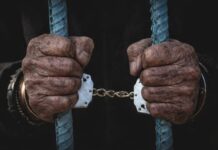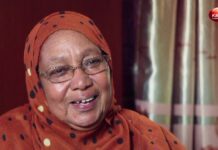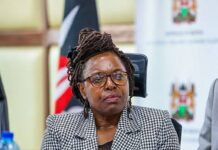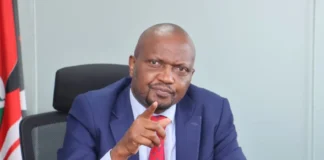A hotline for abused and troubled men has resumed following a five-month break due to a shortage of operational funds.
Those in need of counselling and guidance on where to seek medical-legal help can now call 1198 without charge.
The emergency line was founded by the Dan Shieshie Foundation in June 2021, during the peak of Covid-19, when occurrences of gender-based violence (GBV) increased due to economic constraints caused by job loss and movement restrictions, bringing together mentally and emotionally strained men and women.
However, it became silent in December 2023 due to a lack of backing from prospective partners.
“Today (May 24, 2024) is a great day for us. The hotline is back in service,” excited Mr Dan Shieshie told Nation.Africa last Friday.
“My greatest concern though is how to sustain its operations. Presently, I’m using my own resources to run it and they are not even enough. I’ve done my best and my heart is in helping the men and giving them a dedicated platform to seek and find help.”
Mr Shieshie said he started the helpline upon discovery that men were uncomfortable to call 1195, the national GBV support line.
He said men perceive 1195 to be for women and girls, and hence 1198, gives them a special alternative to share their tribulations in confidence.
Mr Shieshie said he needs at least Sh400,000 every month to pay the bill for the calls, and clear the counsellors’ and overhead costs. The monthly cost is determined by the number of calls; the higher the number of calls, the bigger the bill.
Men, too, are victims of GBV, which leaves them mentally and emotionally damaged.
As of 2003, the Kenya Demographic and Health Survey found that husbands with no education and those who had reached high school and beyond were at the highest risk of being abused by their wives.
In the survey, 3.1 per cent of women married to husbands with no education said they had abused them. While 2.5 per cent of the wives admitted to having committed violence against their husbands with a secondary school education or post-secondary training.
Over the years, the prevalence has worsened. And men are increasingly becoming victims of domestic violence.
Already, the government has realised the unequal manner in which it’s running gender equality campaigns, prompting it to start a male engagement programme.
“We have a structure called the National Gender Sector Working Group, which is within the intergovernmental framework for the gender sector.
“It has been in existence since 2019,” said Jackline Makokha, director of gender mainstreaming directorate at the state Department of Gender and Affirmative Action in an earlier interview.
“Within the gender sector, we used to have four thematic areas, that is, women in leadership, socioeconomic empowerment and inclusion, GBV and women, and peace and security.
“But in August 2023, we launched the fifth thematic area, which is the male engagement and inclusion, because a large group of members felt issues of boys and men were forgotten, yet these are a population of people who are critical to the gender agenda.”



















